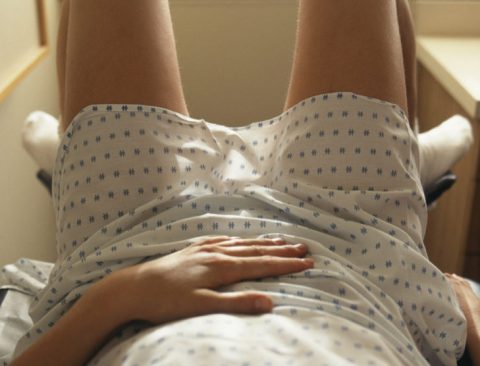Endometrial Currettage

What is it?
- Endometrial Curettage simply means taking a sample of tissue from the inside lining layer (endometrium) of your uterus. (The layer that comes out when you have a period.)
- Sometimes this procedure is called a D&C which stands for dilation and curettage. This describes how we do the procedure, by gently opening the cervix and then removing some of the uterus lining cells(endometrium) which is then examined for any abnormality.
- This is a done in our office.
- During a D&C, we can also remove endometrial polyps. (folds of the lining cells which can cause bleeding)
Why is it necessary?
- Sometimes we are concerned about abnormalities in the uterus which can cause irregular bleeding, heavy periods, spotting at any time or bleeding during menopause.
- If you had an ultrasound showing a thickened or abnormal endometrium, we may recommend that a specimen is taken to help identify the abnormality, and at times, make sure there are no precancerous or cancer cells.
- If have bleeding while using Tamoxifen or have abnormal uterus cells on a pap test, we often do a curettage.
- An Ultrasound of the uterus can often help us decide whether you need an endometrial curettage.
- Taking a sample of the lining is one way of investigating these problems.
- The sample will be sent to the lab and a pathologist uses a microscope to make a pathology (“tissue”) diagnosis.
- Once we know the cause, we can choose the correct treatment
How is it done?
- This is a very safe, small procedure that literally millions of women have every year around the world.
- Beforehand, we will thoroughly discuss the “why” and “how” of the procedure. Other options will be reviewed. We hope that you are comfortable to ask us questions.
- You should never have any procedure done without being fully informed about it, understanding clearly about other options, possible side effects and risks. Never feel shy or intimidated to ask questions before a procedure or treatment is done! This is your body, not ours!
- At Meridia Gynecology, we do the procedure in our centre, in a similar way that we do a regular gynecology examination, but focusing on the cervix and the uterus to obtain a sample.
- If possible, the curettage is not done during a period.
- We give you anti-inflammatory and pain medication before and during to ensure minimal discomfort.
- A local anaesthetic is always used for your comfort and safety.
- We always check in with you during the procedure and we can stop at any time if you wish.
- It is quick, about 1 minute; however the set up time takes about 30 minutes.
- There is usually some cramping during the procedure, like a period cramp!
Please let us know if you……
- Are or might be pregnant. (An endometrial curettage will cause a miscarriage)
- Are taking any medicines.
- Are allergic to any medicines.
- Have had bleeding problems (bleed easily) or take blood-thinners, such as Aspirin (ASA) or Warfarin (Coumadin).
- Have been treated for a vaginal, cervical, or pelvic infection in the past 4 weeks.
- Have any heart or lung problems. (including stents, valve problems etc)
- Have an artificial joint (e.g. hip or knee replacement)
After Care….
- You may have a little cramping for a few minutes to a few hours. Ibuprofen will relieve this.
- It is normal to have light bleeding or spotting afterwards. This can last for a few days.
- As long as the bleeding does not increase, there is no need for concern. Wear a panty liner.
- Because of a slight risk of infection, we recommend not putting anything in your vagina for about one week after the procedure. This means no vaginal intercourse and no tampons.
- Shower instead of taking baths the first week after the procedure.
- You can go back to work after the procedure.
- We will see you again in 2-4 weeks, to discuss any results and to make future plans.
Note:
Please contact us or your family doctor immediately if any of the following occurs:
- Fever / chills
- Increased / prolonged bleeding
- Difficulty passing urine
- Increasing abdominal pain
- Foul-smelling vaginal discharge.
- Headache / dizziness
Call us, or come to the centre. We are open Mon-Fri 8-5. After-office hours please go to the nearest ER. Our phone number is 416-484- 8383.
